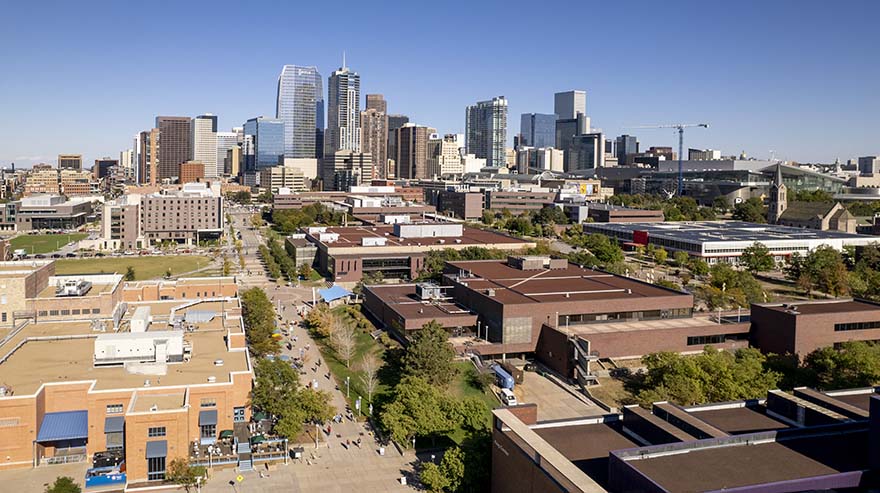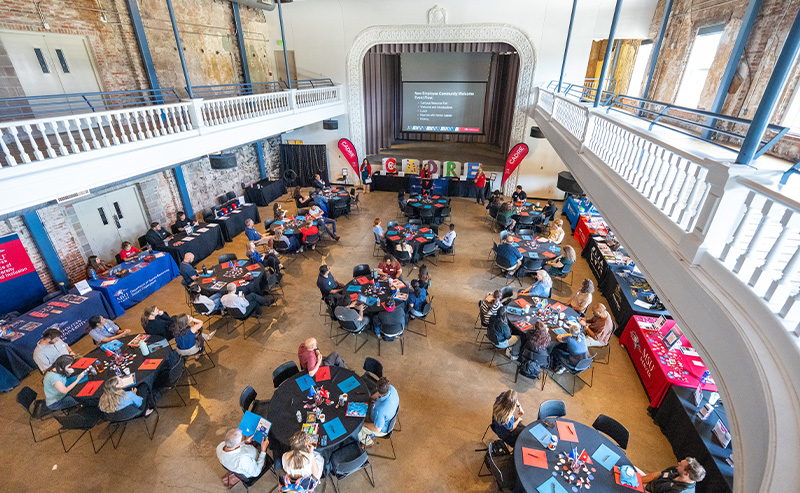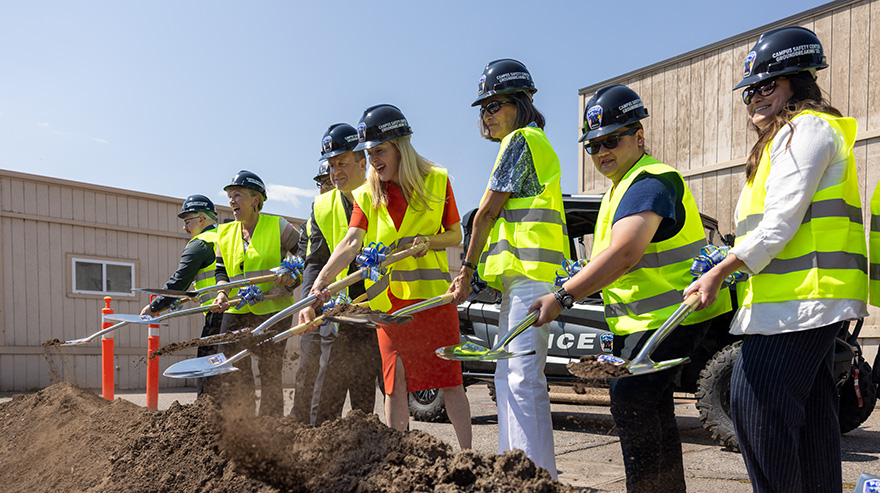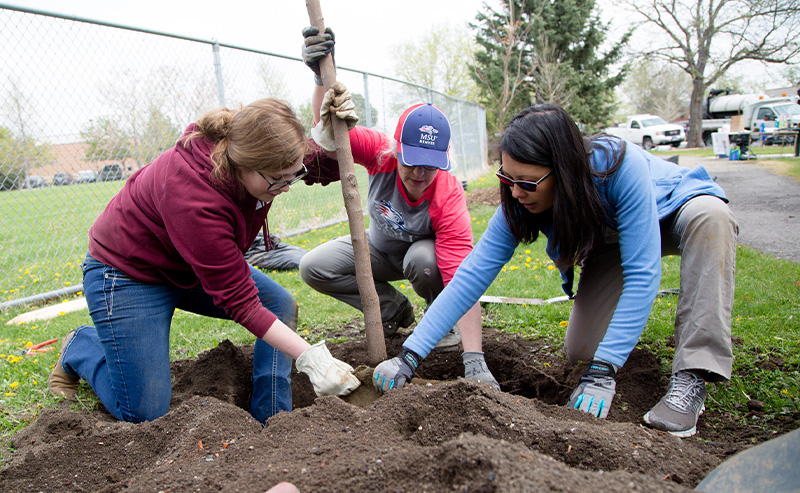Following a highly competitive national search, Laura Niesen de Abruña, Ph.D., will be Metropolitan State University of Denver’s next provost and executive vice president for Academic Affairs, President Janine Davidson, Ph.D., announced Monday.
Niesen de Abruña, who has served as provost for four other institutions of higher learning and has spent years in the classroom as an accomplished professor of English, will begin her new role Jan. 25.
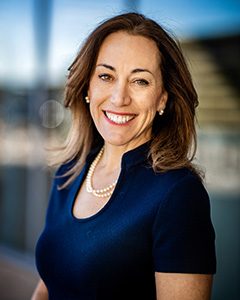
“I’m extremely impressed with Dr. Niesen de Abruña’s breadth of experience, her skills and her sense of purpose,” Davidson said. “She is a leader who gets things done and will hit the ground running. I couldn’t be more excited about MSU Denver’s future as we enter this new chapter.”
Niesen de Abruña currently serves as provost and vice president of Academic Affairs at Dominican University in River Forest, Illinois. She previously served in similar leadership roles at York College of Pennsylvania, Sacred Heart University in Connecticut and Roger Williams University in Rhode Island.
In her announcement to MSU Denver’s faculty and staff, Davidson noted Niesen de Abruña’s “long history of working effectively with faculty and university leadership to address challenges with innovative solutions.”
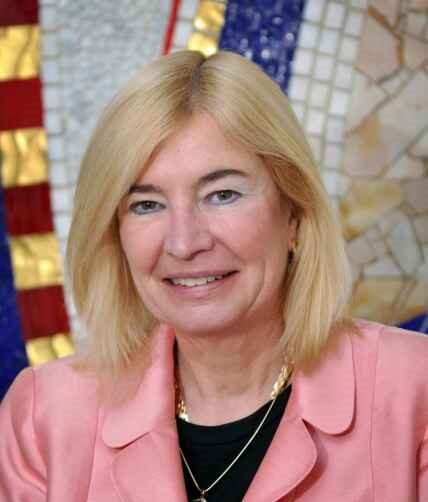 LauraNiesen de Abruña, PH.D.Niesen de Abruña, who visited campus last week to meet members of the MSU Denver community, said the University “matched perfectly” what she was seeking in a new opportunity in higher education.
LauraNiesen de Abruña, PH.D.Niesen de Abruña, who visited campus last week to meet members of the MSU Denver community, said the University “matched perfectly” what she was seeking in a new opportunity in higher education.
“For at least a decade, I have been interested in joining a larger institution that had the mission of serving an urban population,” she said. “I was also drawn to MSU Denver as a university that has a great mission as an open-access, HSI and anti-racist institution focused on serving first-generation students.”
Davidson thanked the Provost Search Committee, which spent months vetting more than 100 applicants. She also thanked Marie Mora, Ph.D., who had been in her role as deputy provost for just seven months when Davidson asked her to serve as interim provost while the University conducted a national search.
“Dr. Mora stepped up big time, and she has been instrumental in creating a path forward that will allow us to move the needle on student retention, completion and post-grad outcomes,” Davidson said.
Niesen de Abruña said that when she assumes her role in January, she will prioritize reviewing ongoing work on advising, faculty workload, the Health Institute, and the creation of new academic policies and procedures.
The Early Bird spoke with Niesen de Abruña to learn more about her experience and approach to academic leadership, as well as what she enjoys doing outside of work.
You have more than 30 years of experience as a faculty member, administrator and chief academic officer. How has your experience in higher education prepared you for this new role?
In my various roles, I have learned a great deal about many of the essential areas of university operations, including working with faculty members, advancing shared governance, working with Enrollment Management, partnering with Student Affairs on student– success initiatives, working with faculty and staff on social justice and DEI initiatives, helping with fundraising and, of course, working on creating the academic budget. I have also paid attention to the important work of maintaining faculty and staff morale and providing professional– development opportunities and mentoring to these groups.
What will be your approach to working with faculty and University leadership to solve problems or achieve institutional goals?
As the chief academic officer, I have been careful to schedule regular meetings with faculty members and my direct reports to identify issues of concern or strategy that need to be addressed. I will make sure that proposed solutions or initiatives coming from Academic Affairs are communicated to the president and President’s Cabinet so that we are aligned. In reaching a decision that affects a large number of students and/or faculty members, I rely on process and communication as essential parts of my decision –making . I have great respect for the academic tradition of shared governance.
In addition to your leadership roles in higher education, you also have extensive experience in the classroom as a professor of English. How does that experience influence or inform your work as provost?
I understand the lived experience of a faculty member progressing through the important stages of an academic career. Through my teaching experience, I’ve become familiar with the expectations around pedagogy and quality teaching, as well as the hard work of service and the challenge of developing a sustainable research agenda I also have first-hand experience working with students and getting to understand their needs as individuals whose growth and development are the instructor’s responsibility. I believe it is essential for a dean or a provost to have spent a good decade in the classroom before presuming to lead colleagues.
What are your interests and hobbies outside of work?
I am interested in art history, Spanish and French literature, and I am a big swimmer. I also have the unusual hobby of lapidary — the art of cutting and polishing gemstones. Colorado is a great state for me to pursue that interest.




